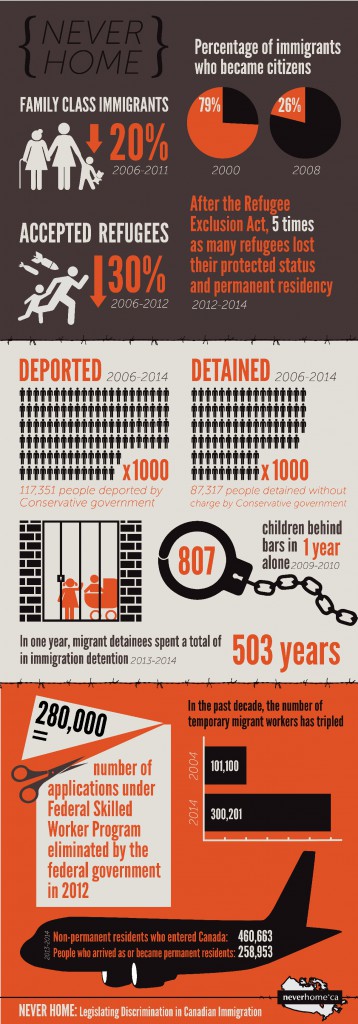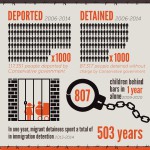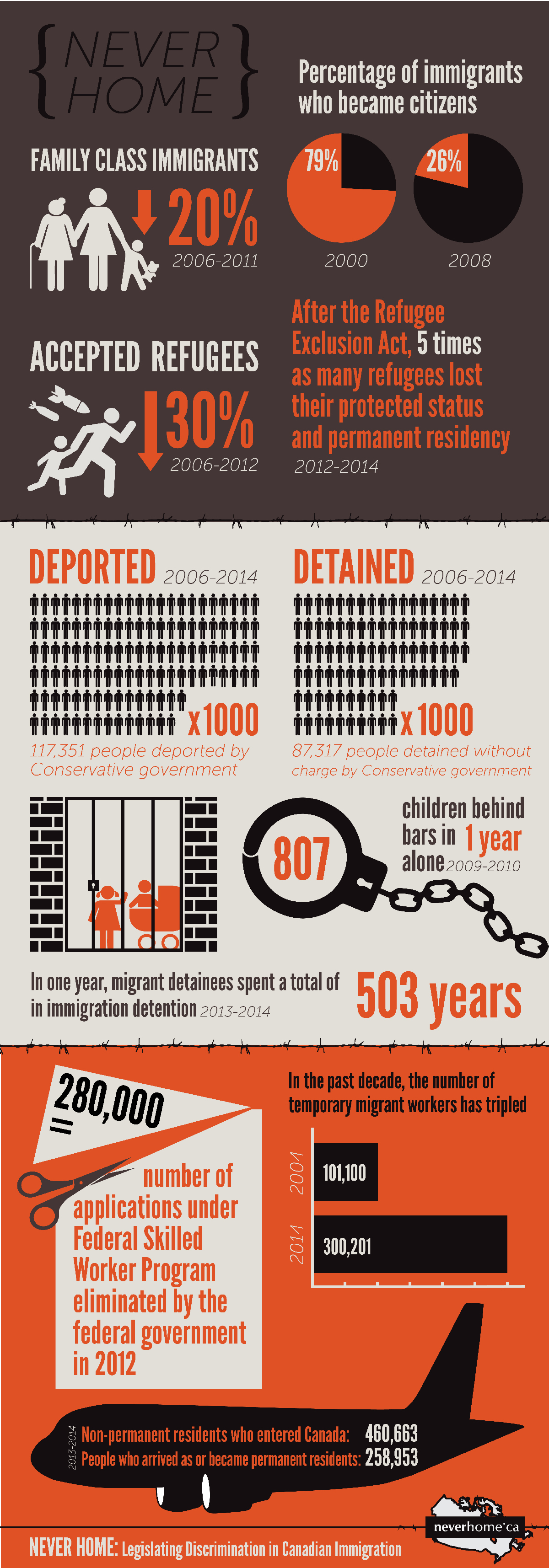A new report says the number of immigrants who became Canadian citizens dropped 53 percent between 2000 and 2008.
By: Neal Hall For Metro Published on Mon Aug 31 2015 Source: Metro News
 Canadian citizenship is harder to obtain and easier to lose under immigration laws introduced over the last nine years by the government of Prime Minister Stephen Harper, says a new report.
Canadian citizenship is harder to obtain and easier to lose under immigration laws introduced over the last nine years by the government of Prime Minister Stephen Harper, says a new report.
“There has been a massive change in the federal immigration system,” report co-author Harsha Walia explained Tuesday. “This government has made immigration temporary and conditional.”
The number of immigrants who became Canadian citizens dropped 53 per cent between 2000 and 2008, said Walia, co-author of the multi-media report released Tuesday titled Never Home: Legislating Discrimination in Canadian Immigration.
Between 2006 and 2011, the number of family-class immigrants dropped 20 per cent and the number of accepted refugees dropped 30 percent, says the report by Walia and Omar Chu of No One is Illegal, a Vancouver immigration rights group.
While the skilled worker immigrant program has been eliminated by the federal government, the number of temporary foreign workers has tripled over the last decade, but limits the length of those workers’ stay to four years, eliminating the possibility of becoming Canadian citizens, the report says.
Other key findings of the report: the Canadian government has jailed 87,317 migrants without charges between 2006 and 2014, spent more than $250 million over five years to detain migrants, cut more than $53 million from immigrant services and deported 117,531 people between 2006 and 2014, including to countries with official moratoriums on deportation.
The report is online here.


